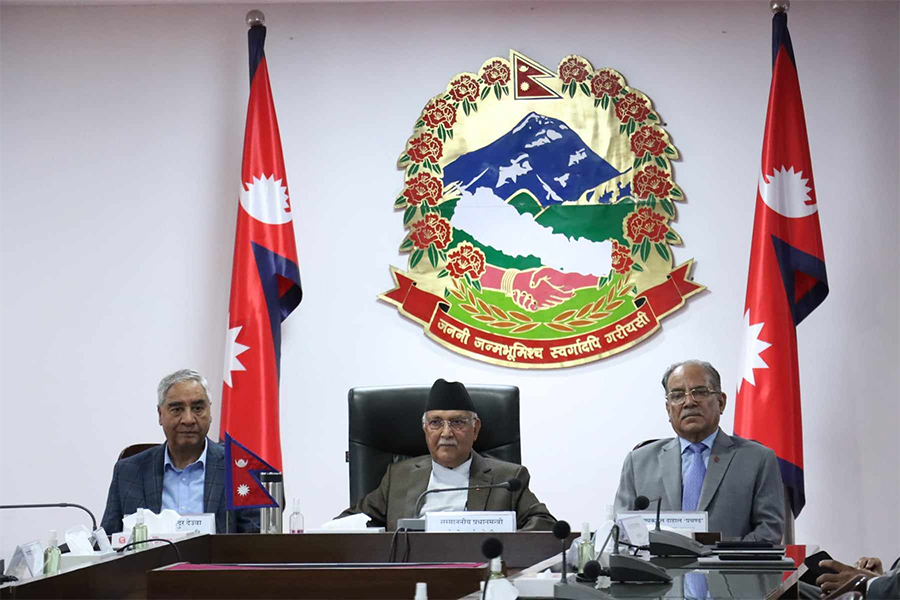Nepal’s Peace Process in Jeopardy? Diplomats Question Controversial Justice Bill!

Nepal’s journey toward peace and reconciliation has been long and complex, rooted in the decade-long civil war (1996-2006) between the Maoist insurgents and the government forces. The conflict resulted in over 17,000 deaths, thousands of enforced disappearances, and widespread human rights abuses. The signing of the Comprehensive Peace Agreement (CPA) in November 2006 marked the official end of the conflict, paving the way for the country’s transition from a monarchy to a federal democratic republic.
One of the key components of the peace process has been addressing the issues of transitional justice—seeking truth, delivering justice, and ensuring reconciliation for the victims of the conflict. The establishment of the Truth and Reconciliation Commission (TRC) and the Commission of Investigation on Enforced Disappeared Persons (CIEDP) in 2015 were significant steps toward this goal. However, both commissions have been mired in controversy and delays, largely due to political disagreements, legal challenges, and insufficient resources.
The TRC and CIEDP were tasked with investigating human rights violations, identifying perpetrators, and recommending reparations. However, the progress has been slow, and the commissions have faced criticism for their lack of independence and effectiveness. As a result, the demands for justice and accountability from the conflict victims have remained largely unmet, contributing to a growing sense of frustration and disillusionment.
Recent Developments in the Transitional Justice Process
In an effort to revive the stalled transitional justice process, the government of Nepal introduced a bill to amend the Act on Investigation of Enforced Disappearances, Truth, and Reconciliation. The proposed amendments aim to address some of the concerns raised by victims’ groups, human rights organizations, and the international community regarding the original legislation.
A significant recent development in this process was the consensus reached by a three-party task force, comprising representatives from the Nepali Congress, the CPN-UML, and the CPN-Maoist Centre. The task force negotiated and agreed on revisions to the bill, particularly on some of the most controversial aspects, such as the scope of amnesty, victim participation in the reconciliation process, and provisions for reparation.
These developments have attracted significant attention from international actors, including diplomats from the United Nations, the European Union, and various foreign embassies in Nepal. On Tuesday, Home Minister Ramesh Lekhak, along with CPN-UML leader Agni Kharel and Maoist leader Khimlal Devkota, engaged in discussions with these diplomats at a hotel in Babarmahal, Kathmandu. During the meeting, the diplomats expressed their concerns about whether the bill, once passed by the parliament, would adequately address the needs and rights of conflict victims.
The diplomats’ concerns are focused on ensuring that the transitional justice process in Nepal aligns with international human rights standards and that the revised law truly reflects a victim-centered approach. The involvement of the international community underscores the global importance of Nepal’s transitional justice process and the need for the government to fulfill its commitments to justice and accountability.
Key Provisions and Commitments in the Transitional Justice Bill
The proposed amendments to the TRC bill include several key provisions aimed at ensuring a more victim-friendly and just process:
-
Victim Consent for Reconciliation: The bill mandates that reconciliation in cases of human rights violations can only proceed with the consent of the victims. This is a crucial provision to ensure that the process respects the rights and wishes of those most affected by the conflict.
-
Exclusion of Serious Violations from Reconciliation: The leaders clarified that there would be no reconciliation in cases involving serious human rights violations, such as forced disappearances, sexual violence, or rape. This provision seeks to prevent impunity for the most heinous crimes committed during the conflict.
-
Access to Judicial Remedies: The bill allows victims to seek justice through the courts if they are not satisfied with the reparations offered. This provision ensures that victims have access to an independent judicial process, reinforcing their right to justice.
-
Financial Reparations: The bill acknowledges the significant financial implications of the reparation process and highlights the need for substantial funds to make the compensation packages attractive and sufficient for the victims. While the government has allocated NPR 1 billion in the budget for reparations, additional funds are being sought from international partners to enhance the reparation package.
Achievements and Challenges in Nepal’s Transitional Justice Process
The achievements of Nepal’s transitional justice process have been mixed. On the one hand, the establishment of the TRC and CIEDP marked an important step toward addressing the legacy of the conflict. The recent consensus on the amendments to the transitional justice bill is another positive development, demonstrating a renewed commitment to advancing the peace process.
However, significant challenges remain. The slow progress of the TRC and CIEDP, coupled with ongoing political disagreements, has hindered the delivery of justice to the victims. The lack of a clear roadmap for implementing the recommendations of the commissions, along with insufficient resources, has further complicated the process.
The concerns expressed by the international community, including diplomats from the UN and the EU, highlight the need for Nepal to ensure that its transitional justice process aligns with global standards and truly addresses the needs of the victims. The success of the process will depend on the government’s ability to implement the proposed amendments effectively, secure adequate funding for reparations, and maintain the confidence of the victims and the international community.
As Nepal moves forward, the transitional justice process will continue to be a critical component of the country’s broader peacebuilding and reconciliation efforts. The government’s ability to address the legacy of the conflict, deliver justice, and promote reconciliation will be key to ensuring lasting peace and stability in Nepal.

![From Kathmandu to the World: How Excel Students Are Winning Big [Admission Open]](https://nepalaaja.com/img/70194/medium/excel-college-info-eng-nep-2342.jpg)
